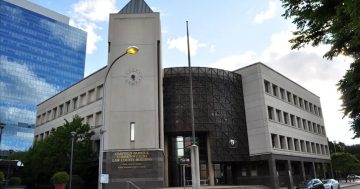 Zimbabwe’s Anti-Corruption Commission (ZACC) says it is currently handling more than 1,000 cases, many involving bribe-taking.
Zimbabwe’s Anti-Corruption Commission (ZACC) says it is currently handling more than 1,000 cases, many involving bribe-taking.
Chair of the an independent Commission, Loice Matanda-Moyo said more than 300 cases had been handed over for prosecution between 2019 and 2021, and the Commission had come up with strategies aimed at prosecuting offenders and ensuring that corruption did not take place.
“When we were constituted as a Commission in 2019, corruption was so endemic in Zimbabwe that it had become a culture, almost a way of life for all Zimbabweans and institutionalised,” Ms Matanda-Moyo (pictured) said.
“Corruption cuts across different classes of society, from ordinary bus drivers to shop-floor workers and top Government and company officials.”
She said the ZACC’s statistics showed 711 cases were reported against public officials, representing 59 per cent of the total complaints received.
Transparency International Zimbabwe convened an anti-corruption conference earlier in the year which found that bribery was rampant in the country and existed within most public institutions.
It said corruption had permeated both public and private spheres, affecting the economic performance of the country and limiting the full enjoyment of human rights by citizens.
Ms Matanda-Moyo said the ZACC had worked out a five-year plan involving three strategic programs: Investigations for prosecution; investigations for asset recovery; and prevention of corruption.
“Under prevention of corruption, the Commission conducts compliance checks and systems reviews in both public and private sectors to ensure that systems and controls that ensure good corporate practices are put into the organisations,” she said.
“The ZACC is also encouraging the introduction of technology to limit human interface, ultimately minimising the solicitation of bribes.”
Harare, 22 September 2022








